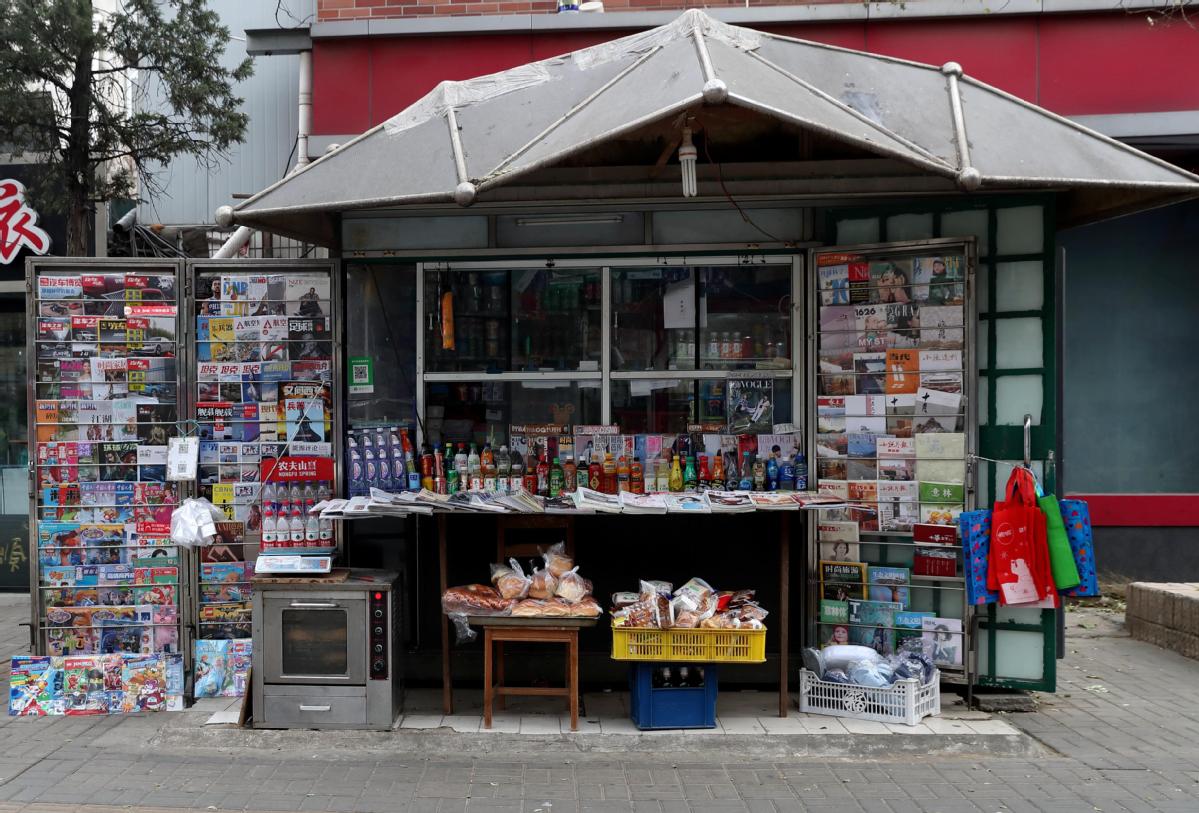Newsstands face battle amid changing times


Street kiosks challenged by ubiquity of internet
Zhang Fan, 33, stopped by a newsstand one recent Sunday morning near his home in Beijing to buy a magazine, only to find the stand had been shut down.
Zhang, a designer living on the Guangqumenwai street in Chaoyang district, used to visit a stand just 500 meters from his residential community to buy newspapers and magazines.
But since he started to read news and other material on his phone, he can count on one hand the number of times he has visited the stand in the past year. He had not even noticed it had been closed for the past four months.
Due to falling demand for newspapers and magazines, newsstands in many cities have been closing. They have also been criticized for obstructing roads and sidewalks and for generally being eyesores.
The Beijing municipal government has decided to upgrade and regulate the city's newsstands by turning them into "innovative reading spaces" and "convenient service providers" to better serve the public.
Li Zhigang, who is in his 40s and comes from Anhui province, runs a different newsstand in Guangqumenwai.
"I haven't been given any notice of closure, but I noticed most newsstands within the Second Ring Road were torn down this year," he said. "I don't know any details about the new policy, but I hope I can continue my business."
According to the Beijing Municipal Commission of City Management, the city's newsstands will be better located based on passenger flow, the number of people living in nearby residential communities, and public demand.
Under the plan drafted by the commission and the Beijing Municipal Commerce Bureau, newsstands will become more like convenience stores and be "more fashionable".
The plan has been submitted to the municipal government for approval. An official with the commission, who declined to be named, said the plan clearly states that the number of newsstands in the city should be based on public need.
"There is no easy way to solve the contradiction between people who love the printed word and have the habit of buying from the newsstands, and the owners' continued operational losses," the official said. "It's also difficult to decide which department is responsible for footing the bill to upgrade newsstands."


















